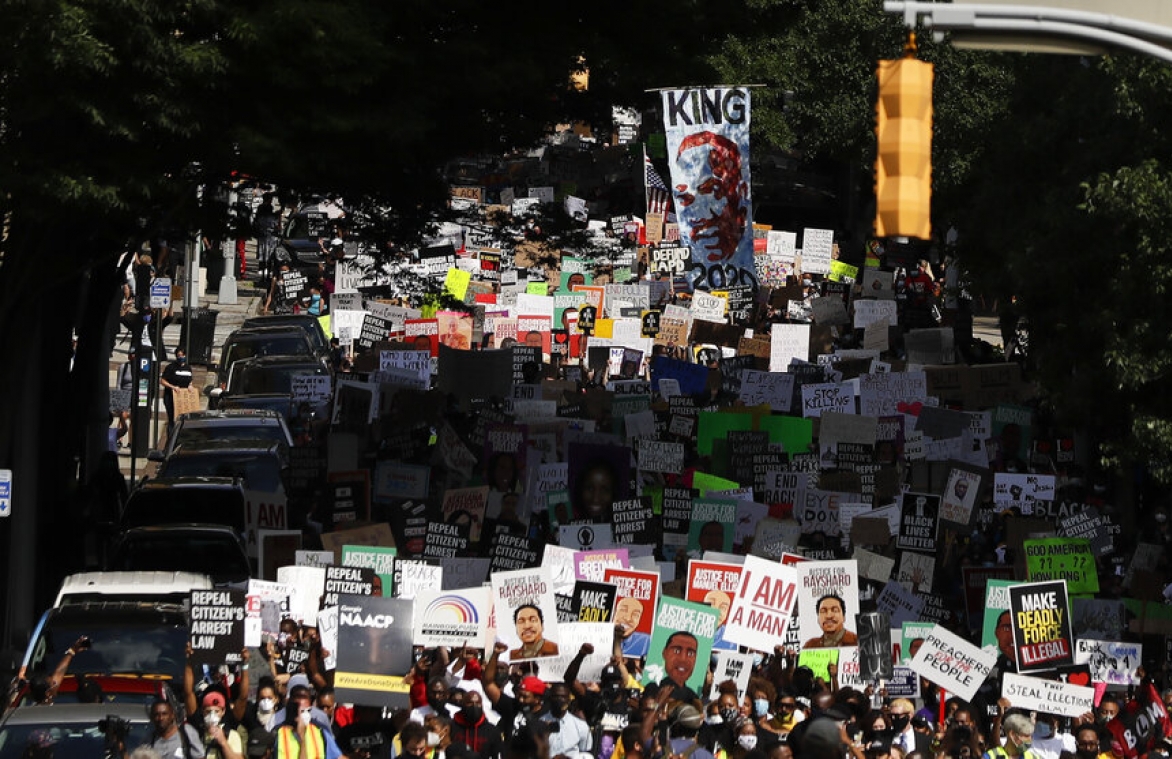By JEFF AMY, Associated Press
ATLANTA (AP) — Georgia would make some kinds of protest a felony under a bill drafted in response to illegal activity during the Black Lives Matter protests in Atlanta in the summer of 2020.
Senate Bill 171 passed on a party-line vote March 15. Sen. Randy Robertson, a Cataula Republican, said the bill would stop people from engaging in illegal activities and force cities and counties not to adopt a hands-off approach to criminal behavior.
“I promise you, this is needed legislation if you want to live in a safe community,” Robertson said.
Democrats, though, said most of the activity Robertson cites as objectionable is already a crime and that the bill is overly broad and unconstitutional because it violates people’s First Amendment rights to free speech and assembly.
“At the end of the day, this is about silencing people; it’s about intimidating people,” said Senate Minority Leader Gloria Butler, a Stone Mountain Democrat.
Robertson rejected claims that his bill would crimp First Amendment rights.
“If you want to go out and protest wrongdoing, protest the government, you can absolutely do that,” he said.
The measure would make it a felony to block a street or highway after being told to leave, would raise simple battery to a high and aggravated misdemeanor if it took place in an unlawful assembly, and make it a felony to deface state property or monuments during an unlawful assembly.
The measure would also make it a misdemeanor to make any threat “specifically directed to inciting or producing imminent lawless action” in any business, museum, park or other public accommodation. That provision is aimed at preventing people from confronting others over political views in places like restaurants.
Any assembly on public property would require a city or county permit containing the names and contact information for people “responsible for managing and maintaining order” and an emergency plan for first aid and security.
Democrats asked why Republicans were seeking to eliminate permit requirements to carry guns publicly in other bills, but to impose permits for protest and assembly.
“Why is the Second Amendment more important than the First Amendment?” asked Sen. Michelle Au of Johns Creek.
The bill would also make it possible for people to sue cities and counties if one “intentionally obstructs or interferes with the ability of a law enforcement agency” during a riot or unlawful assembly.
Robertson said that’s aimed at preventing a repeat of the city of Atlanta’s failure to prevent armed “chaos,” particularly when it failed to stop protesters from taking over a neighborhood and burning down a fast-food restaurant after an Atlanta police officer shot and killed Rayshard Brooks in 2020. An 8-year-old girl, Secoriea Turner, was slain on July 4, 2020, while riding in an SUV that turned around at a roadblock manned by armed people.
“When a city in the state of Georgia chooses, chooses, to stand down public safety when that public safety is needed the most … that city could well surrender their sovereign immunity and be held liable by the victims of the crimes they chose not to address,” Robertson said.
Under the proposed bill, people caught in protests blocking streets or roads could defend themselves in court against any injuries they caused while fleeing protests if they had a “reasonable” belief that fleeing was necessary to stop or prevent an attack on their person, which opponents warn will give people a license to run over protesters.
The Free Speech Center newsletter offers a digest of First Amendment and news media-related news every other week. Subscribe for free here: https://bit.ly/3kG9uiJ

